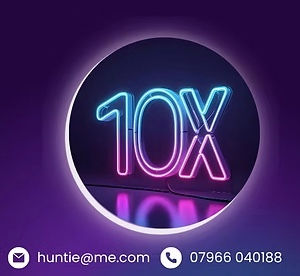Case Study: Expand Reality - Transforming Organic Search Traffic
- Simon Hunt
- Aug 5, 2025
- 3 min read
Updated: Oct 23, 2025
Client Overview Expand Reality is an innovative online reseller specializing in Virtual Reality hardware, including cutting-edge products like the new Meta 3 and 3S mixed reality goggles. Despite having a niche but growing market, their ecommerce platform was struggling with low visibility, receiving only about 50 visits per month.
Challenge The primary challenge was to significantly boost search engine traffic to drive sales and brand awareness. The existing approach involved outsourcing an agency that focused on vanity keyword rankings, which resulted in high costs (£2,000/month) but little actual commercial value and minimal impact on targeted traffic. The website lacked transparency and measurable outcomes, limiting Expand Reality’s ability to evaluate marketing effectiveness.
Objectives
Increase and transforming organic search traffic substantially
Gain full transparency on search term performance
Develop a high-quality content strategy that converts
Leverage government partnerships and creative funding for maximum impact
SolutionOur approach combined strategic transparency, tailored content creation, and government-funded cost savings:
Transparency and Data-Driven SEOWe deployed a comprehensive suite of SEO tools providing real-time insights into keyword rankings, search volume, and quality metrics. This enabled Expand Reality to focus on high-intent keywords with genuine commercial value, not vanity metrics.
In-House Content Creation TeamWe assembled a dedicated content team consisting of:
1 video editor
1 content creator
1 design and creative talent
These specialists, costing £3,300/month under a government-funded scheme (through Nowskills), created targeted videos, blog posts, product visuals, and engaging content centered around the new VR hardware. Their efforts built authority and engagement across channels.
Partnerships & Funding
HubSpot: We negotiated a three-year phased deal for a Marketing Toolkit, Content Management System, and CRM, with discounts of 90%, 75%, and 50% through our partnership with Innovate Grants, significantly reducing costs.
Meta Advertising: Meta platforms funded a £10,000 creative content campaign focusing on promoting the new 3 and 3S mixed reality goggles, amplifying reach and engagement.
Results The combined efforts yielded stunning results:
Web Traffic: Monthly visitors skyrocketed from 50 to 8,000 — a 160-fold increase.
Search Visibility: Targeted keywords shifted from vague, vanity terms to high-conversion, informational, and product-specific phrases.
Engagement: Enhanced content and advertising led to higher engagement metrics and a more qualified traffic base.
Cost Efficiency: Significant government and platform funding reduced costs, increasing ROI and enabling sustained investment in growth initiatives.
Conclusion Expand Reality’s transformation demonstrates the power of transparency, strategic content, and government-supported investments in digital marketing. Moving away from vanity metrics to measured, valuable traffic resulted in exponential growth, positioning Expand Reality as a leader in the competitive VR hardware market.
Next Steps Continue refining content strategies, expand influencer partnerships, and leverage new product launches to sustain growth momentum.
FAQs: Transforming Organic Search Traffic
What does it mean to “transform organic search traffic”?
It means improving not just the volume of visitors from search engines but also the quality of that traffic — attracting users who are more likely to convert into leads or customers.
Why is organic search still critical for small and mid-sized businesses?
Organic traffic delivers consistent, high-intent visitors at a lower long-term cost than paid channels. It also builds authority and trust with search engines and potential customers.
What’s the first step in improving organic search performance?
Conduct a data-led SEO audit to identify keyword gaps, content weaknesses, technical issues, and on-page opportunities for better rankings.
How do you attract higher-quality traffic from Google?
Focus on search intent — align content and landing pages with what users actually want, whether it’s information, comparison, or purchase intent.
What role does content quality play in organic traffic growth?
High-quality, original, and helpful content improves dwell time, backlinks, and engagement signals — all key factors that drive better organic rankings.
How can technical SEO improvements transform results?
Fast-loading pages, mobile optimisation, structured data, and crawl efficiency make your site easier for Google to index — boosting visibility and ranking potential.
What tools help measure and track organic search performance?
Platforms like Google Search Console, GA4, SE Ranking, and Looker Studio help track impressions, clicks, CTR, keyword positions, and ROI from SEO activities.
How does AI impact modern SEO strategy?
AI assists with keyword clustering, content optimisation, and performance analysis — helping businesses create relevant, high-performing pages at scale.
How long does it take to see measurable results from organic SEO changes?Typically 3–6 months, depending on competition, content authority, and consistency. SEO success compounds over time as rankings and backlinks strengthen.
How can SMEs turn organic traffic into real business leads?
Combine SEO with conversion rate optimisation (CRO) — using clear CTAs, lead magnets, and marketing automation to capture and nurture visitors into paying customers.




Comments